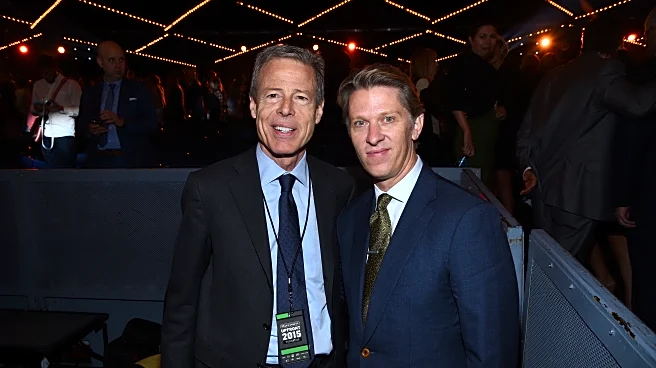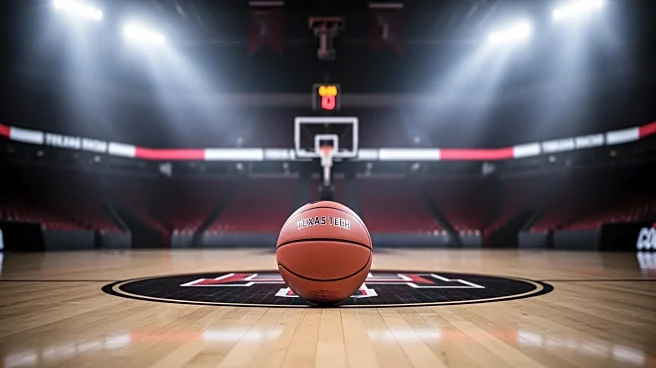When the UFC sold to Endeavor in 2016 for just over $4 billion, there were plenty of analysts saying the talent agency-turned-entertainment powerhouse vastly overpaid for the promotion.
Less than a decade
later, the UFC has repeatedly earned record revenue across all avenues including media rights, sponsorships, ticket sales and merchandising. The UFC also recently signed a $7.7 billion deal to move from ESPN to Paramount in 2026, with the company now combined with WWE for a value estimated at over $21 billion.
New PFL CEO John Martin saw all of this coming when he previously served as an executive at Turner and Time Warner and tried to convince the powers-that-be to get into the bidding to buy the UFC.
“In 2008, I tried to get Time Warner excited to potentially partner with or acquire the UFC for HBO and for our broader company,” Martin told MMA Fighting. “Then in 2016 before it was sold to Ari [Emanuel] and his team, tried to get Time Warner to step up and buy it then.
“I had a lot of audience there but unfortunately the company was well down the path to being sold to AT&T so the timing just didn’t work out.”
While he’s not exactly patting himself on the back for calling his shot, Martin wasn’t surprised at all to see the UFC flourish in the aftermath of that sale. The promotion has continuously expanded with additional revenue streams and the Paramount deal makes the UFC one of the most profitable sports brands in the world.
Now Martin hopes to apply that same kind of business acumen to PFL operations as he settles into his new role as CEO.
“I haven’t got everything right in my business calls. I’ve been pretty fortunate,” Martin said. “But this one I got right. In 2016, I remember telling my boss at the time, Jeff Bewkes, I said in five to seven years, the UFC will be worth three to four times what it’s worth right now and I was right.
“That’s why I’m here at PFL. Where PFL is at after seven short years is sort of where UFC was from a scale and maturity standpoint back around when I first started talking to Dana [White]. I can see the same path and the same opportunity and PFL has the benefit of sort of drafting in the wake of UFC’s success.”
Currently, the PFL is wrapping up a multi-year broadcast deal with ESPN with those rights extending through the end of 2026. ESPN is preparing to lose the UFC after 2025, which puts PFL in an interesting position moving forward.
Martin views the UFC inking the $7.7 billion Paramount deal as a huge help when it comes time for PFL to begin negotiations on new broadcast rights because he knows there’s a thirst for combat sports in the United States and around the globe.
“I think the Paramount deal is good for PFL because it’s a huge validation that mixed martial arts is a mainstream sport,” Martin said. “I can imagine the first decade or maybe the first decade and a half, the UFC probably had a lot of its conversations around just trying to justify that MMA was a real, premium sport. The good news is none of those conversations will be or need to be happening anymore with MMA becoming a mainstream entity with a huge fan base.
“There’s very limited supply of product. We offer partners consistent scheduling and I think we’ll see what happens, what comes out of that. When I saw that headline hit after I had already been announced I was coming to PFL, that the Paramount deal was going to happen, I thought this great for PFL. It’s great for mixed martial arts. Now my job is to go off and execute and build this into a bigger, global sports powerhouse company.”
PFL becomes the only combat sports show in town on ESPN starting in January and Martin anticipates working with executives there to discuss their long-term commitment to MMA.
A huge part of Martin’s job now becomes seeking out a new broadcast deal for 2027 with plans to make the PFL an even bigger player in the industry moving forward.
“If you look at the U.S. media rights, PFL is thrilled to be on ESPN and partner with ESPN,” Martin said. “We have one more year to go in 2026 with ESPN. I look forward to collaborating with them and now that they don’t have the UFC, understanding how much commitment they’re going to have to MMA and PFL, but I think given the huge amount of value by Paramount on those rights, given the scarcity of MMA availability, if you want to now buy rights to a premium MMA organization any time over the next seven years, there’s only one really game in town. It’s us. It’s PFL.
“So what I’ll be looking for is a committed partner. One that will give us consistent schedule and support and one that will give us marketing and promotion in addition to more money for the rights. So we’ve got time to do that.”
Martin doesn’t dispute the UFC is still the worldwide leader when it comes to MMA, but he knows there’s more than enough room for PFL to carve out its own share in the marketplace.
He’s not trying to kick a hornet’s nest when it comes to competing with the UFC, but Martin believes PFL has a place at the table, and he’s excited for the future.
“Between UFC and PFL, there are only 80 premium events a year,” Martin said. “If you compare that to professional soccer or professional basketball where there are thousands of games and the rabid, passionate fan base that MMA is drawing, there’s plenty of room for a No. 2. A strong No. 2 like PFL but seven years it took PFL to get where it is today. It’s a competitive position that arguably is not going to be replicated.
“There is absolutely room for at least a second. But when people say is this the NFL versus the XFL? No, that’s not an appropriate comparison. This is Coke-Pepsi. This is Serie A versus Premier League versus LaLiga. These are all successful brand and products and sports leagues that can co-exist because the fan base is so massive. PFL is entering into its phase of its life cycle where it’s about executing and growing the business.”









